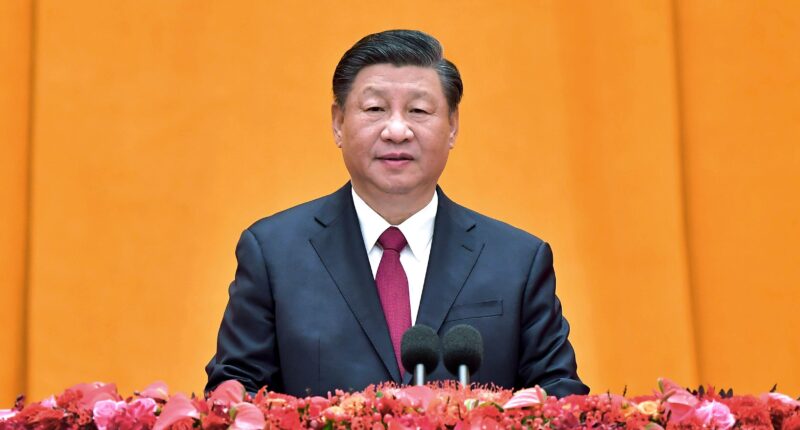POPULAR image generator Midjourney can create an infinite array of pictures using the power of artificial intelligence (AI).
But there’s one person that the platform cannot create.
There has been blanket ban on images of Chinese leader Xi Jinping since last year, the boss of the platform revealed last week.
CEO David Holz told the Washington Post that his team wanted to “minimise drama” around hyper-realistic AI-generated images, also known as ‘deepfakes’.
Even if they are supposedly made in ‘good jest’.
“Political satire in China is pretty not okay,” said Holz.


He explained that Chinese people having local access to tools like Midjourney was more important than those outside of the country being able to satirical about the dictator.
There are other terms which are reportedly restricted in Midjourney, such as ‘Afghanistan’, but Holz has refused to make the list public.
Restrictions like this arise when technology is prone to abuse.
In this case, when it is difficult to decipher the real from the fake.
Most read in Tech
Ex-White House chief Theresa Payton told The Sun in January that by 2024, AI-generated people will be nearly impossible to detect.
But it appears we have already arrived at that fate.
Images of Donald Trump getting arrested (ahead of the former US president being criminally charged) and the Pope wearing a white puffer coat have done the digital rounds over the past few weeks.
Trump was shown being chased down by cops and being tackled to the ground in a messy, brawl-like fashion.
It’s an example of political satire that Holz doesn’t want to test in China.
Some say it’s unfair to limit freedom of expression with AI.
The trouble is, many believed these images were real, with the image of the Pope even being mistakenly used by a popular Italian newspaper.
Experts have said Payton’s concern was inevitable.
But the idea of hostile actors hopping aboard the trend to sow dissent online is becoming increasingly likely, they say.
As a company, Midjourney has acknowledged the difficulty in establishing policies on content.
New safeguards haven’t been “sufficient” to prevent misuse during the tech’s trial period, according to Holz.


The limitless supply of deepfakes that are currently flooding the internet, permeating public discourse and even legitimate newspapers, is exactly why Midjourney last week revoked its free trial.
From now on, users will have to fork out $10 a month for the privilege to create such content, where anyone can dip into infinity and emerge an artist, meme lord or a political rebel.
Artificial Intelligence explained
Here’s what you need to know
- Artificial intelligence, also known as AI, is a type of computer software
- Typically, a computer will do what you tell it to do
- But artificial intelligence simulates the human mind, and can make its own deductions, inferences or decisions
- A simple computer might let you set an alarm to wake you up
- But an AI system might scan your emails, work out that you’ve got a meeting tomorrow, and then set an alarm and plan a journey for you
- AI tech is often “trained” – which means it observes something (potentially even a human) then learns about a task over time
- For instance, an AI system can be fed thousands of photos of human faces, then generate photos of human faces all on its own
- Some experts have raised concerns that humans will eventually lose control of super-intelligent AI
- But the tech world is still divided over whether or not AI tech will eventually kill us all in a Terminator-style apocalypse
We pay for your stories! Do you have a story for The Sun Online Tech & Science team? Email us at [email protected]











